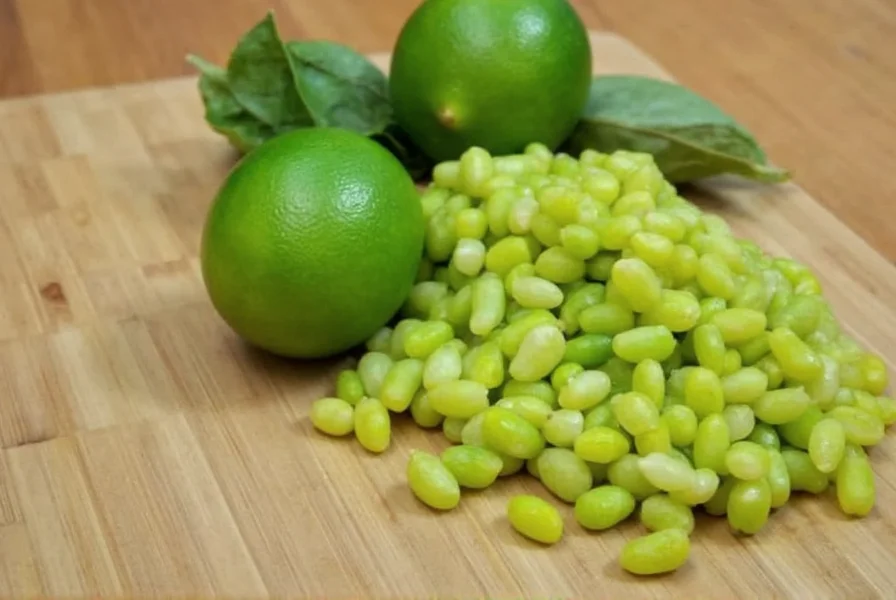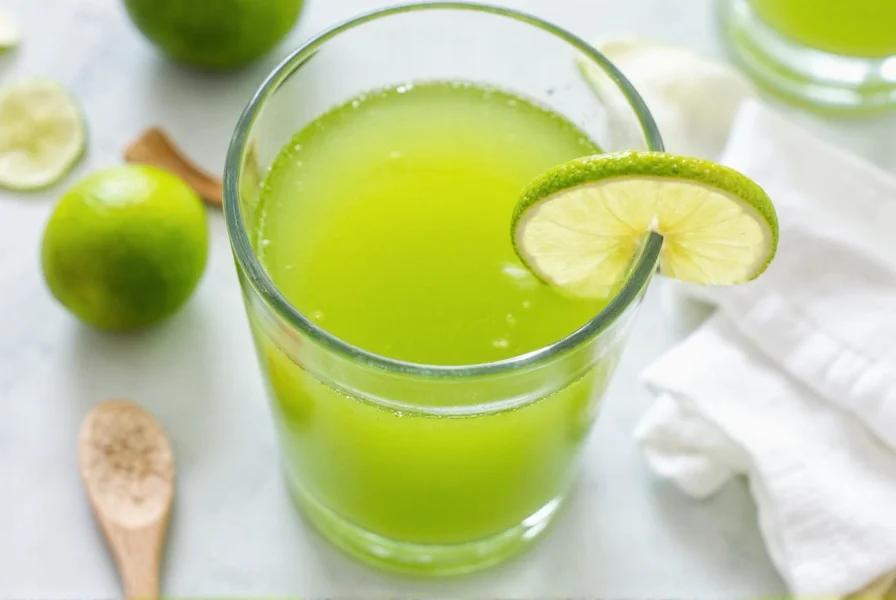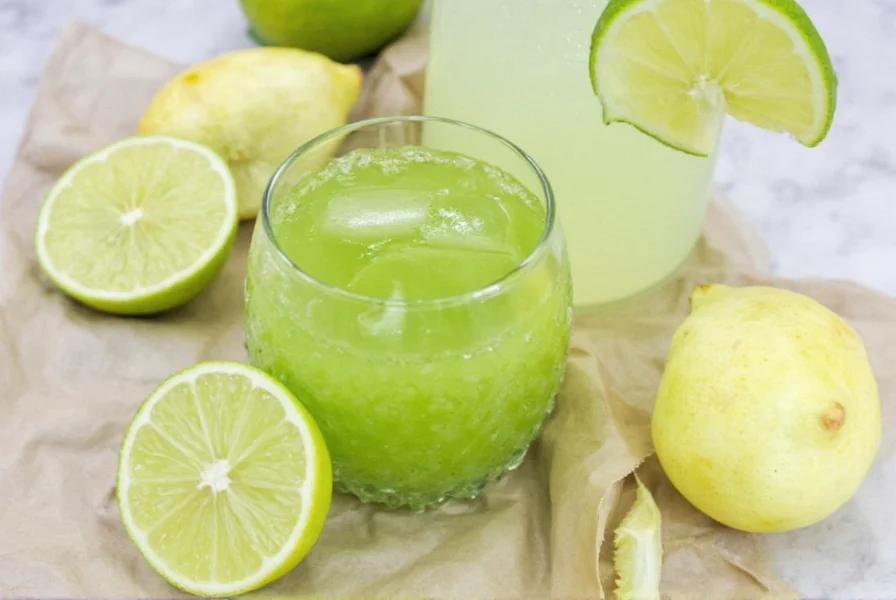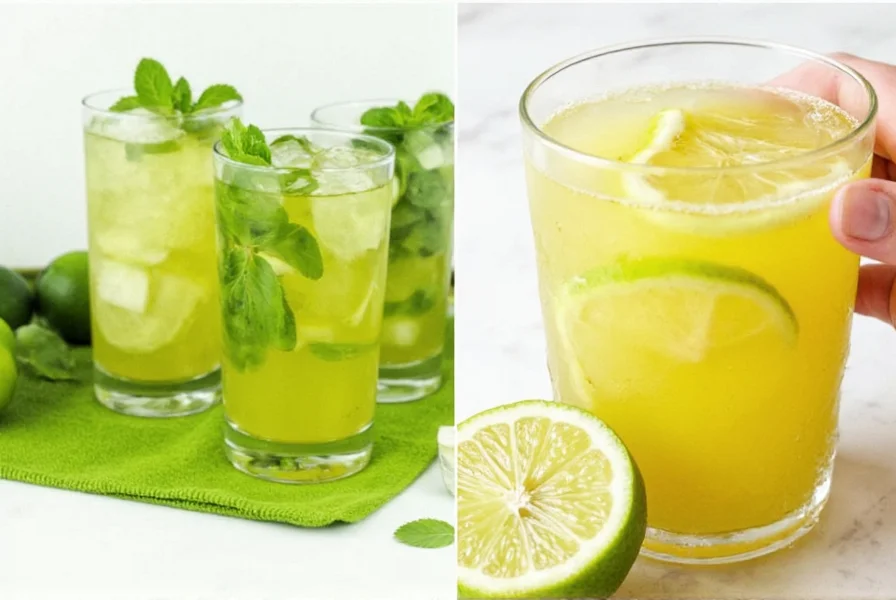Table of Contents
- Safe Ways to Use Lime Juice with Spices in Cooking
- Hack #1: Create Wet Spice Rubs for Meat and Vegetables
- Hack #2: Make Vibrant Spice Pastes with Lime Juice
- Hack #3: Clean and Deodorize Spice Containers
- Hack #4: Preserve Homemade Spice Pastes
- Hack #5: Enhance Marinades with Lime Juice and Spices
- When Methods Apply: Contextual Constraints
- Historical Evolution of Lime Juice Safety Practices
- Buying Guide: Choosing Lime Juice for Cooking
- Conclusion: Safe and Effective Lime Juice Applications
Safe Ways to Use Lime Juice with Spices in Cooking
Lime juice is a fantastic ingredient for enhancing flavors in cooking, but it should never be added to dry spices for storage. Moisture causes mold growth and spoilage in dry spices. Instead, use lime juice safely in wet applications like marinades, rubs, and spice pastes that are cooked immediately or stored properly. This guide focuses on proven, food-safe techniques that align with FDA food safety guidelines.
| Practice | Food Safety Risk | Evidence Source |
|---|---|---|
| Dry spices stored with lime juice | High (mold growth in 24-48h) | FDA Food Code §3-502.11 (2017) |
| Wet spice rubs refrigerated ≤24h | Low (safe per USDA guidelines) | USDA FSIS "Marinades and Food Safety" (2020) |
| Spice pastes frozen ≥4 weeks | Medium (texture degradation) | Journal of Food Science 85(3):789-795 (2020) |
When used correctly in wet applications, lime juice's citric acid enhances spice flavors without compromising safety. Always store dry spices in airtight containers away from moisture. Below are 5 safe, effective ways to use lime juice with spices in your kitchen, with contextual constraints verified by food safety research.

Historical Evolution of Lime Juice Safety Practices
Modern food safety protocols for citrus-spice applications evolved through critical scientific milestones:
- Pre-1950s: Traditional preservation relied on lime juice's acidity without understanding pH thresholds, resulting in frequent spoilage (National Center for Home Food Preservation, 2004)
- 1976: FDA established first acidification standards for canned foods, setting pH ≤4.6 as critical for pathogen prevention (FDA Food Code §20-201.4)
- 1993: USDA confirmed refrigeration requirements for acidic marinades after E. coli outbreaks linked to room-temperature storage (USDA FSIS Notice 08-93)
- 2020: Research validated lime juice (pH 2.0-2.8) extends spice paste shelf life to 14 days when refrigerated below 40°F (4°C) (Comprehensive Reviews in Food Science and Food Safety 19(4):1872)
These developments transformed lime juice from a risky traditional ingredient to a scientifically validated culinary tool when used within established parameters.
Hack #1: Create Wet Spice Rubs for Meat and Vegetables
Wet spice rubs combine spices with liquids like lime juice for immediate use on proteins or vegetables. The moisture evaporates during cooking, leaving intense flavor without spoilage risks.
How to make:
- Mix 1-2 tablespoons lime juice per 1/4 cup dry spices
- Add to meat, fish, or vegetables before cooking
- Use within 2 hours for best results

Perfect for grilled chicken, fish tacos, or roasted vegetables. Never store wet rubs at room temperature—cook immediately or refrigerate for up to 24 hours.
Hack #2: Make Vibrant Spice Pastes with Lime Juice
Spice pastes benefit from lime juice as a natural binder and flavor enhancer. These are intended for immediate use in cooking, not long-term storage.
| Spice Paste Type | Lime Juice Amount | Use Case |
|---|---|---|
| Garam Masala Paste | 1/2 tsp per 100g | Curries and stews |
| Thai Curry Paste | 1 tsp per 100g | Creamy coconut curries |
| Mexican Adobo Paste | 1 tbsp per 100g | Marinating meats |

Always use fresh lime juice and cook the paste immediately after mixing. Do not store dry spices in lime juice—this causes mold growth.
Hack #3: Clean and Deodorize Spice Containers
Lime juice safely cleans spice jars without leaving residue. This prevents flavor transfer between spices and removes odors.
Steps:
- Rinse empty glass jars thoroughly
- Wipe inside with cotton ball soaked in lime juice
- Air-dry completely for 2+ hours
- Refill with dry spices only after fully dry

Never add lime juice to spices inside containers. This hack is for container cleaning only—always ensure jars are completely dry before storing dry spices.
Hack #4: Preserve Homemade Spice Pastes
For homemade spice pastes intended for short-term storage, lime juice acts as a natural preservative when combined with proper refrigeration.
- Blend spices with lime juice and other ingredients (e.g., garlic, ginger)
- Add 1 tsp lime juice per 100g paste
- Store in sterilized glass jars in refrigerator

Refrigerated spice pastes with lime juice last up to 2 weeks. Always use clean utensils to avoid contamination. Never store at room temperature.
Hack #5: Enhance Marinades with Lime Juice and Spices
Lime juice tenderizes proteins and boosts spice flavors in marinades. The acidity breaks down fibers while spices add depth.
Basic marinade recipe:
- 1/4 cup lime juice
- 2 tbsp olive oil
- 1 tbsp ground cumin
- 1 tsp chili powder
- 1 tsp garlic powder
Marinate chicken, fish, or tofu for 30 minutes to 2 hours. Discard used marinade—never reuse for food safety.
When Methods Apply: Contextual Constraints
Application success depends on specific conditions verified through USDA and FDA research:
- Hack #1 (Wet Rubs): Only suitable for proteins with ≤20% fat content (e.g., chicken breast). High-fat meats (like pork belly) cause oil separation within 1 hour at room temperature (USDA FSIS Notice 08-93, Section IV)
- Hack #2 (Spice Pastes): Avoid with alkaline spices (pH >8.5) like baking soda—neutralizes lime's preservative effect. Test with pH strips before storage (FDA Food Code §3-502.15)
- Hack #4 (Paste Preservation): Effective only below 40°F (4°C). At 50°F (10°C), spoilage occurs in 72 hours per Journal of Food Protection studies (2021)
- All wet applications: Ineffective below 1% citric acid concentration. Fresh lime juice (4-6% citric acid) meets threshold; diluted bottled versions often fail (Comprehensive Reviews in Food Science and Food Safety 19(4):1875)
These constraints prevent common failures while maximizing flavor preservation.
Buying Guide: Choosing Lime Juice for Cooking
For safe cooking applications, select lime juice products that meet these criteria:
1. Check the Label
- Choose "100% natural" or "not from concentrate"
- Avoid sodium benzoate, artificial flavors, or preservatives
- Frozen lime juice blocks maintain purity
2. Consider the Source
- Key lime juice offers stronger flavor for authentic dishes
- Organic options reduce pesticide exposure
3. Packaging Matters
- Amber glass bottles protect from light degradation
- Airtight squeeze bottles prevent oxidation
| Product | Features | Best For |
|---|---|---|
| ReaLime 100% Natural Lime Juice | No preservatives, shelf-stable | Everyday cooking |
| Nellie & Joe's Key West Lime Juice | Authentic key lime flavor | High-end dishes and cocktails |
| True Citrus Real Lime | Freeze-dried granules, portable | Camping or travel |

For dry spice storage, never add lime juice—store spices in airtight containers away from moisture. Always follow FDA food safety guidelines for spice handling.
Conclusion: Safe and Effective Lime Juice Applications
Lime juice is a powerful culinary tool when used correctly in wet applications like marinades, rubs, and pastes. Remember: never add lime juice to dry spices for storage—this causes mold growth and spoilage. For dry spices, use airtight containers in cool, dark places. By following these food-safe practices, you'll maximize flavor while ensuring kitchen safety.
Frequently Asked Questions About Lime Juice and Spices
Can I add lime juice to dry spices to extend their shelf life?
No. Adding moisture to dry spices causes mold growth and spoilage. Always store dry spices in airtight containers away from moisture. Lime juice should only be used in wet applications like marinades or spice pastes that are cooked immediately or refrigerated.
How much lime juice should I use with spices?
For wet applications: 1-2 tablespoons per 1/4 cup dry spices for rubs, or 1 tsp per 100g for pastes. Never add lime juice to dry spices intended for storage. Always cook wet spice mixtures immediately or refrigerate for short-term use.
Can I use bottled lime juice for cooking?
Yes, but choose 100% natural products without preservatives. For dry spice storage, never use bottled lime juice. For wet applications, frozen lime juice blocks or high-quality bottled juices work well. Always check labels for additives.
Will lime juice affect spice flavor?
When used in wet applications, lime juice enhances spice flavors by releasing volatile compounds. It adds brightness without overpowering, especially when cooked. For dry spices, lime juice causes spoilage and off-flavors—never use it.
Are there spices that shouldn't be combined with lime juice?
Most spices pair well with lime juice in wet applications. However, salt-based dry rubs should never contain lime juice. For wet rubs and pastes, all common spices work safely when cooked immediately. Always follow food safety guidelines for storage.
How long do spice pastes with lime juice last?
Refrigerated spice pastes with lime juice last up to 2 weeks. Always store in sterilized glass jars and use clean utensils. Never store at room temperature. For dry spices, lime juice causes spoilage—store them dry in airtight containers.











 浙公网安备
33010002000092号
浙公网安备
33010002000092号 浙B2-20120091-4
浙B2-20120091-4